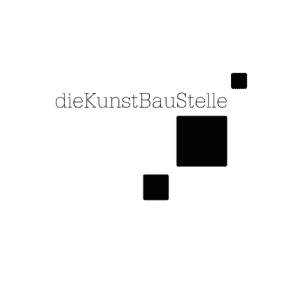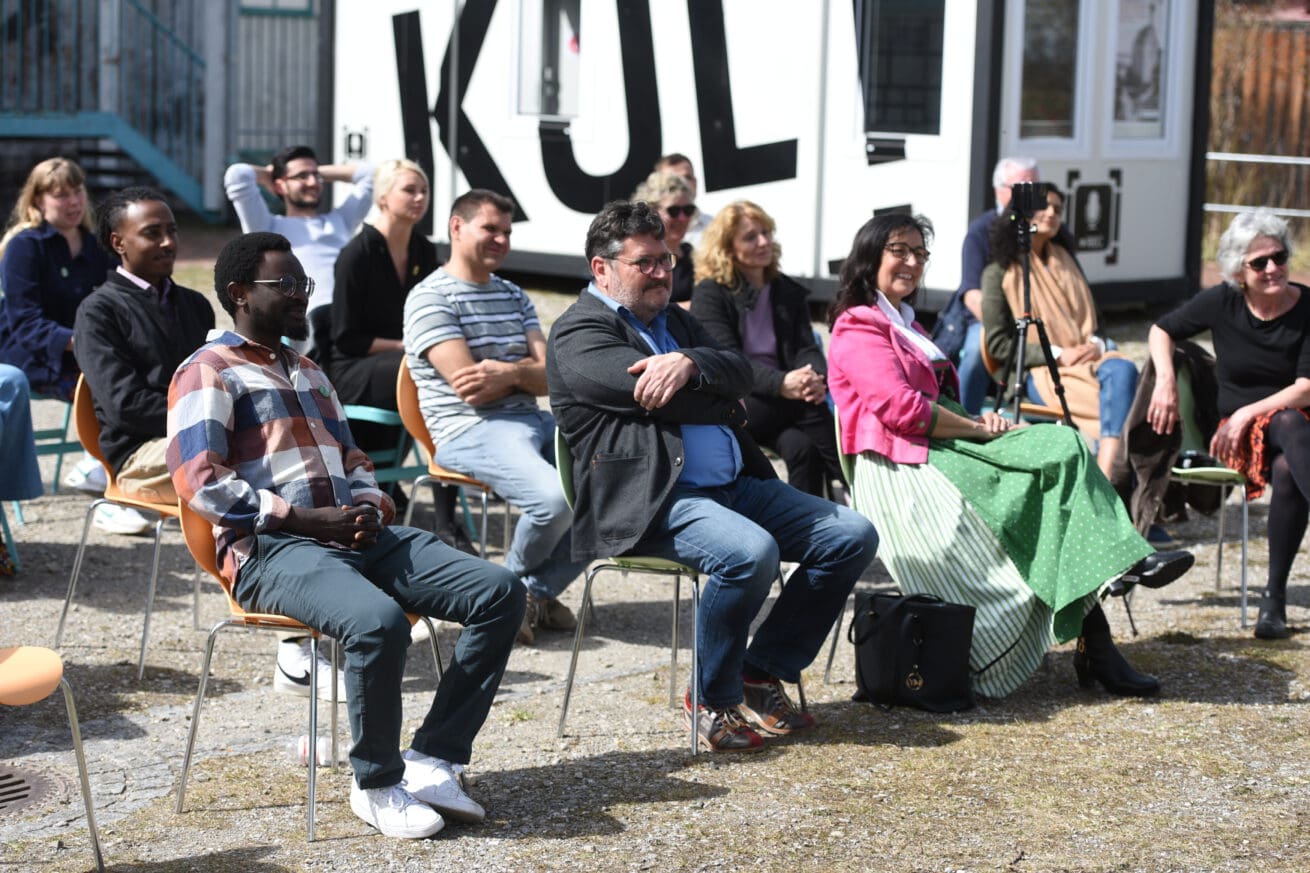EU-Delegation besucht Kulturprojekt im Fuchstal
Digitales Rucksackeisen – 15 Sprachen, ein Ziel
Fuchstal begrüßt Teilnehmer des internationalen EU-Projekts „Digitales Rucksackreisen“. Was die Kultainer mit dem EU-Vorhaben verbindet und warum eine Fußfessel aus dem Türkenkrieg Beispiel für das Geschichtenerzählen in Zeiten des digitalen Reisens sein kann.
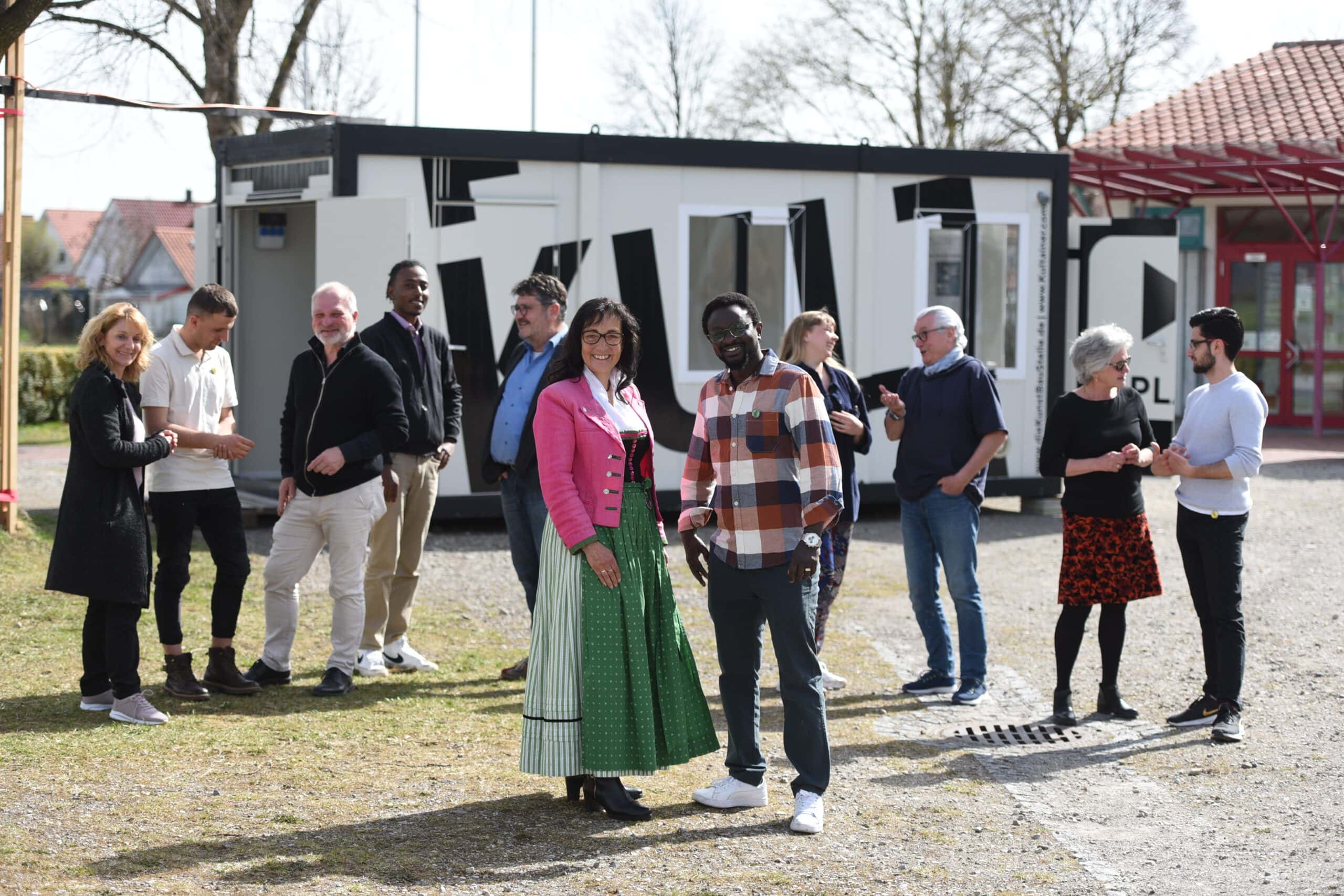
Fuchstal/Landsberg: Sie leben in Dänemark, Amsterdam und Deutschland, doch die Hälfte der Teilnehmer und Teilnehmerinnen sind in Syrien, Afghanistan, Äthiopien, Burundi und Jemen geboren. Neun Moderatoren und Reporter im Alter zwischen 22 bis 36 und fünf Leitern von Organisationen sind Teil eines Projekts, das Kontakte in Krisenregionen aufbaut und einen digitalen Kulturaustausch „als digitale Rucksackreise“ ermöglichen möchte.
„Die Regionen Jemen, Afghanistan, Äthiopien und Syrien leiden nicht nur unter mehrjährigen Konflikten und Kriegen, leiden nicht nur unter Nahrungsmangel, sondern vor allem unter der Not, vergessen zu werden“, so Berit Muhlhausen, die über 18 Jahre lang in Afghanistan zusammen mit David Mason für tausende von Kindern einen mobilen, kleinen Kinder Zirkus aufgebaut hat, der heute noch in allen Regionen aktiv ist.
Ein wichtiges Utensil der „digitalen Rucksackreisen“ dieses Erasmus-Projekts der EU, durch das die Reisehindernisse der letzten beiden „Coronajahre“ digital überwunden werden sollen, sind Erinnerungsstücke von Auslandsaufenthalten. Dazu hat Fuchstal ein ganz besonderes „Souvenir“ zu bieten: Eine schmiedeeiserne Fußfessel in der Dorfkirche. Diese erzählt von einem Gefangenen der Türkenkriegen und seiner Heimkehr.
Im Herbst werden sich dann über 45 Mitwirkende des Projekts in Berlin treffen, um die Ergebnisse in verschiedener Formaten zusammenzuführen. Die EU hat vor allem die Idee der digitalen Ausstellung begeistert und fördert das Vorhaben mit 113.000 €.
Vor dem Besuch in der Kirche von Leeder wurde die internationale Fachgruppe von Fuchstals Bürgermeister Erwin Karg vor den Kultainern begrüßt, der angesichts des schönen Wetters riet: „Be happy!“ Karg bedankte sich in seiner Rede besonders für die Teilnahme der Landtagsabgeordneten Gabriele Triebel und der stellvertretenden Landrätin Margit Horner-Spindler. Triebel betonte die Relevanz eines Reiseprojekts für junge Menschen: „Die jungen Menschen haben durch die Pandemie die Erfahrung nicht gemacht, was denn zutiefst menschlich ist bei uns allen. Sie müssen es erst lernen.“ Margit Horner-Spindler hob hervor, wie wichtig zwischenmenschlicher Austausch Ihrer Meinung nach ist: „Man bekommt einen anderen Blick auf Kultur, Politik und Religion. Nur durch Austausch und im Gespräch bleiben kommt man letztendlich zum Frieden“.
Wolfgang Hauck, Partner im internationalen EU-Projekts erklärte den Zusammenhang zwischen den im Landkreis Landsberg zirkulierenden Kultainern und ihren Vorgängern, den sehr bunten afghanischen „Funtainern“ (Fun, Spaß und Container) und den türkischen fliegenden Bibliotheken, den „Edutainern“ – Education für Bildung. Die Kultainer wollen mit mobiler Technik den kulturellen Austausch zwischen den Menschen in einem Ort unterstützen.
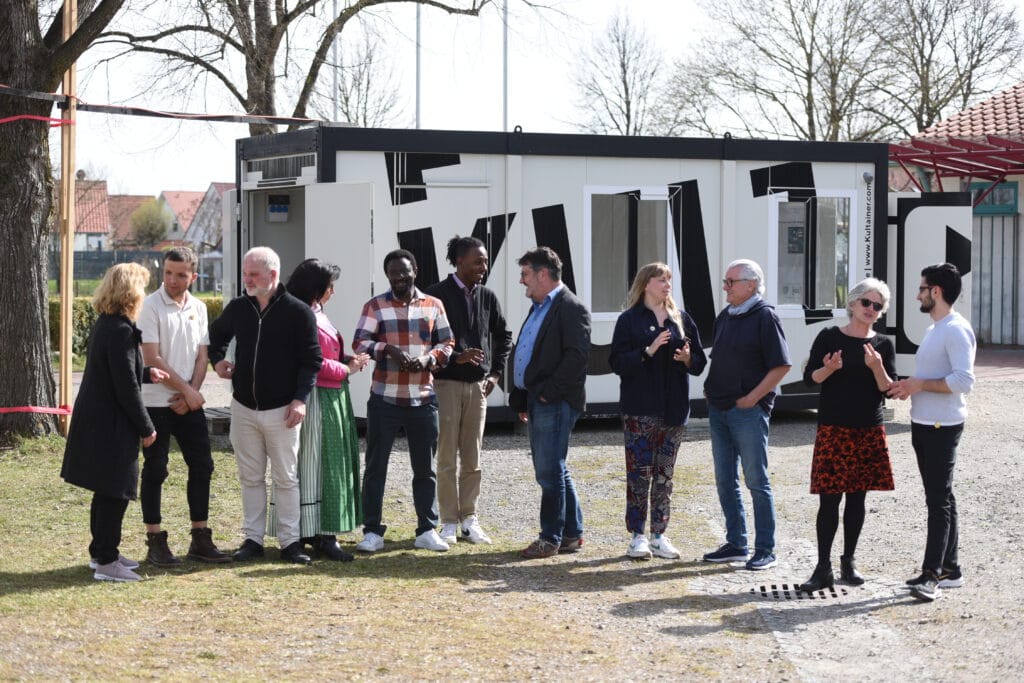
Eine der Unterstützer und Partner ist der Hamburger Verein „Würde für Kinder“, den Anna Lena Johansson mit ihrem Mann 2003 gegründet hat. Auch sie kennt die Lage vor Ort in Krisenregionen. Wolfgang Hauck, dieKunstBauStelle, traf nun zwei afghanische Trainer wieder, die er in Afghanistan 2018 als Stelzen-Trainer ausgebildet hat. „Stelzenlaufen war neben Jonglieren, die einzige Betätigung, die auch Mädchen und Frauen erlaubt war. Das gab den Mädchen ein neues Lebensgefühl und Erfahrungen, um mit der schwierigen Lage einen Lichtblick zu haben“, so Hauck.
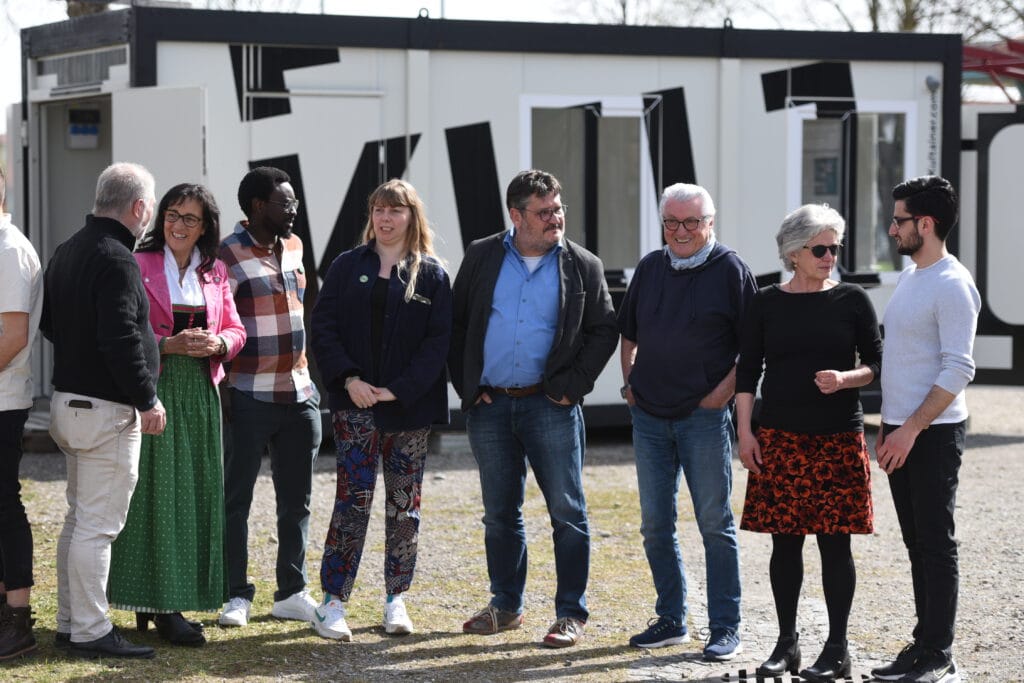
Als „Social Circus“ wird die soziale Arbeit mit Kinder und Jugendlichen bezeichnet, bei der mit dem Techniken des Zirkus wirkungsvolle traumpädagogische Begleitung möglich sind. „Ein Blick in die tausenden von Videos und Bildern zeigt, welche soziale und emotionale Wirkung diese Angebote für das Zusammenleben in Krisenzeiten haben,“, so Mie Clemens Schwartz, die als Anthropologin, das Projekt in Kabul vor acht Jahren kennengelernt hatte.
Diese vielfältige Zusammensetzung des Teams stand am Anfang des Besuchs im Fuchstal. Die Begrüßung wurde in 15 verschiedenen Sprache gesprochen, und dabei zählte die bayerische Begrüßung durch Bürgermeister Karg noch nicht dazu.
Pressemeldung 16. April 2022
